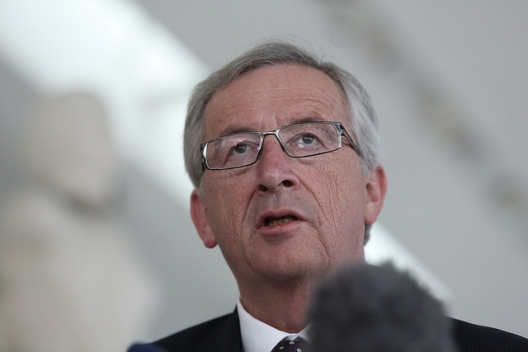 Our European Union is, at least in part, in an existential crisis.
Our European Union is, at least in part, in an existential crisis.
Over the summer, I listened carefully to Members of this Parliament, to government representatives, to many national Parliamentarians and to the ordinary Europeans who shared their thoughts with me.
I have witnessed several decades of EU integration. There were many strong moments. Of course, there were many difficult times too, and times of crisis.
But never before have I seen such little common ground between our Member States. So few areas where they agree to work together.
Never before have I heard so many leaders speak only of their domestic problems, with Europe mentioned only in passing, if at all.
Never before have I seen representatives of the EU institutions setting very different priorities, sometimes in direct opposition to national governments and national Parliaments. It is as if there is almost no intersection between the EU and its national capitals anymore.
Never before have I seen national governments so weakened by the forces of populism and paralysed by the risk of defeat in the next elections.
Never before have I seen so much fragmentation, and so little commonality in our Union.
We now have a very important choice to make.
Do we give in to a very natural feeling of frustration? Do we allow ourselves to become collectively depressed? Do we want to let our Union unravel before our eyes?
Or do we say: Is this not the time to pull ourselves together? Is this not the time to roll up our sleeves and double, triple our efforts? Is this not the time when Europe needs more determined leadership than ever, rather than politicians abandoning ship?
Our reflections on the State of the Union must start with a sense of realism and with great honesty….
Europe can only work if we all work for unity and commonality, and forget the rivalry between competences and institutions. Only then will Europe be more than the sum of its parts. And only then can Europe be stronger and better than it is today. Only then will leaders of the EU institutions and national governments be able to regain the trust of Europe’s citizens in our common project.
Because Europeans are tired of the endless disputes, quarrels and bickering.
Europeans want concrete solutions to the very pertinent problem that our Union is facing. And they want more than promises, resolutions and summit conclusions. They have heard and seen these too often.
Europeans want common decisions followed by swift and efficient implementation.
Excerpts from the State of the Union speech by the President of the European Commission Jean-Claude Juncker, September 14, 2016.
Image: President of the European Commission Jean-Claude Juncker, May 19, 2014 (photo: Jean-Claude Juncker)
